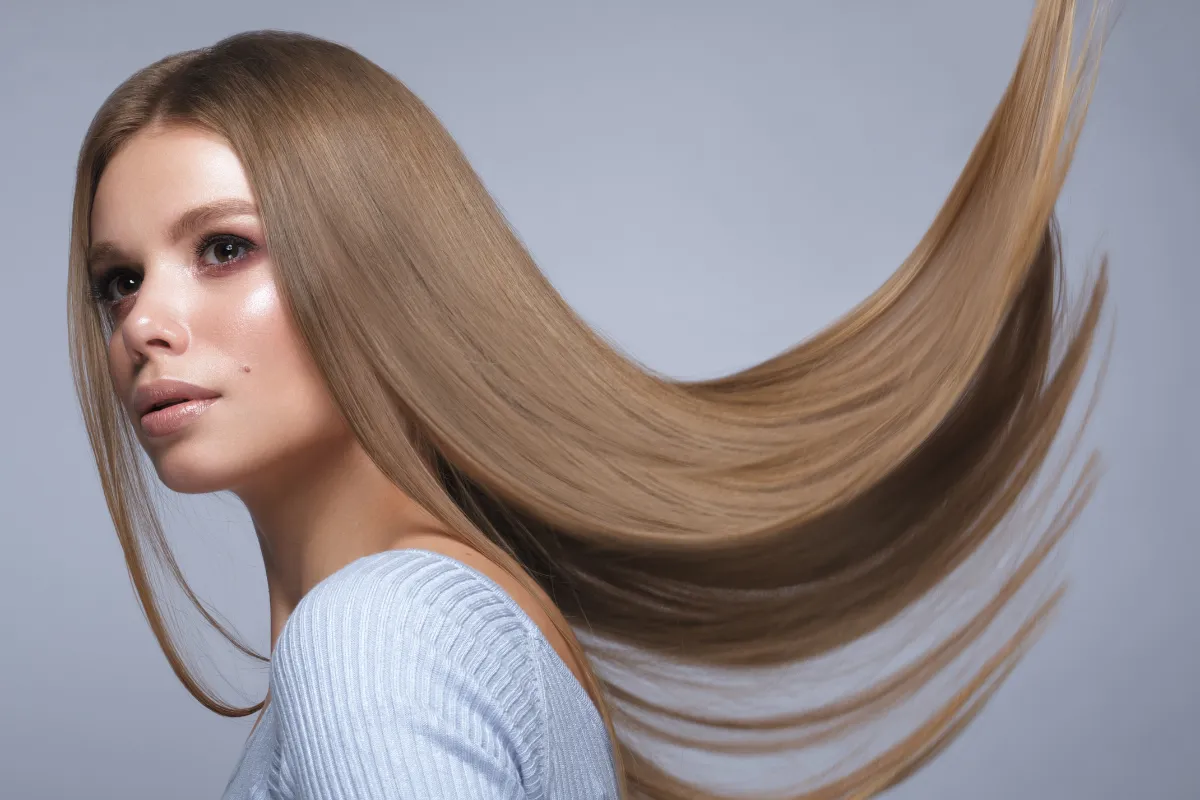Silky, smooth hair is a universal symbol of beauty and vitality, coveted by many but often elusive to achieve.
While genetics play a role in determining hair texture, there are several steps you can take to enhance the silkiness of your hair right at home.
In this comprehensive guide, we’ll explore the factors that contribute to silky hair, effective home remedies, hair care tips, and lifestyle changes to help you achieve the luscious locks you’ve always dreamed of.
Understanding the Factors Affecting Hair Texture:
Hair Type: Hair texture varies from person to person, ranging from fine and straight to coarse and curly. Understanding your hair type is essential for selecting the right products and treatments.
Hair Health: The condition of your hair and scalp, including factors like hydration, oiliness, and damage, significantly impacts its texture and appearance.
Environmental Factors: Exposure to harsh weather conditions, pollution, and UV rays can strip the hair of its natural oils and moisture, leading to dryness and dullness.
Hair Care Practices: The way you wash, condition, style, and treat your hair can affect its texture and overall health. Using the right products and techniques is crucial for maintaining silky strands.
Home Remedies for Silky Hair:
Deep Conditioning Treatments:
Regular deep conditioning treatments can help replenish moisture, repair damage, and improve the overall texture of your hair.
Consider using natural ingredients like coconut oil, avocado, honey, or yogurt for DIY hair masks.
Scalp Massage:
Massaging your scalp with nourishing oils like coconut oil, olive oil, or almond oil stimulates blood flow, promotes hair growth, and enhances the health of your hair follicles.
Apple Cider Vinegar Rinse:
An apple cider vinegar rinse helps balance the pH of your scalp, remove product buildup, and seal the hair cuticle, resulting in smoother, shinier hair.
Aloe Vera Gel:
Aloe vera gel is rich in vitamins, minerals, and enzymes that nourish and hydrate the hair, leaving it soft, silky, and more manageable.
Silk Pillowcases:
Sleeping on silk pillowcases reduces friction and static electricity, preventing hair breakage and tangling while preserving its smoothness and shine.
Hair Care Tips for Silky Hair:
Use a Gentle Shampoo:
Opt for sulfate-free, gentle shampoos that cleanse the hair without stripping away its natural oils.
Avoid overwashing, as it can lead to dryness and damage.
Condition Regularly:
Condition your hair after every wash to replenish moisture, detangle knots, and improve manageability.
Focus on the mid-lengths and ends, where hair is most prone to dryness.
Avoid Heat Styling:
Excessive heat styling can damage the hair cuticle, leading to frizz, breakage, and dullness.
Minimize the use of heat styling tools like flat irons and blow dryers, and always use a heat protectant spray before styling.
Trim Regularly:
Regular trims help prevent split ends and breakage, keeping your hair looking healthy and silky.
Aim to trim your hair every 6-8 weeks to maintain its shape and vitality.
Protect from Environmental Damage:
Shield your hair from sun exposure, chlorine, and pollution by wearing hats or scarves and using protective styling products with UV filters.
Lifestyle Changes for Silky Hair:
Stay Hydrated:
Drinking plenty of water helps hydrate your scalp and hair from within, promoting healthy growth and improving texture.
Eat a Balanced Diet:
A diet rich in vitamins, minerals, and essential fatty acids nourishes your hair follicles, strengthens your strands, and enhances their silkiness and shine.
Manage Stress:
Chronic stress can disrupt your hair’s growth cycle and contribute to hair loss and dullness.
Practice stress-relieving techniques like meditation, yoga, or deep breathing exercises to promote overall hair health.
Get Adequate Sleep:
Quality sleep is essential for cell regeneration, including hair follicles.
Aim for 7-9 hours of uninterrupted sleep each night to support optimal hair growth and texture.
Conclusion:
Achieving silky hair at home requires a combination of proper hair care practices, nourishing treatments, and lifestyle adjustments.
By understanding the factors that affect hair texture, incorporating home remedies and hair care tips into your routine, and making healthy lifestyle choices, you can transform your hair from dry and dull to soft, smooth, and lustrous.
Experiment with different treatments, products, and techniques to find what works best for your hair type and enjoy the luxurious, silky strands you’ve always desired.
